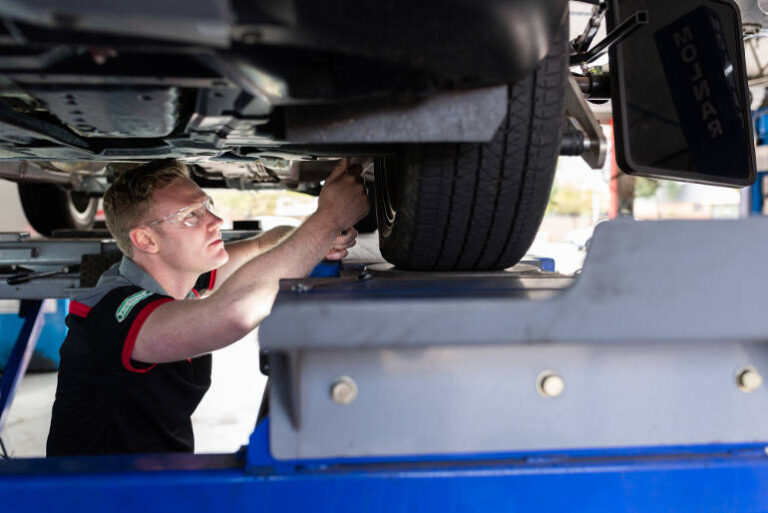The Motor Traders’ Association of NSW (MTA NSW) is urging the state government to help fund electric vehicle (EV) safety and repair training, warning that there are 49,000 workers that need to be upskilled to safely handle and repair EVs in order to meet state and federal targets of transitioning to EVs by 2030.
It comes as MTA NSW prepares to launch its training program later this month but worries that without support from government, the industry will be left severely underprepared to service and repair EVs, as the state works towards increasing the number of EV sales to 52% by 2030-31 with the vast majority of new car sales being EVs by 2035.
In order to work on EVs, workplaces must undertake safety training to fulfil their obligations under Section 19 of the Work Health and Safety Act 2011 (NSW). Specialised training is essential for workplace safety, as EV batteries are of high voltage which range between 400 and 800V DC.
For automotive technicians (mechanics) and auto-electricians, a full training safety course could cost up to $3,000 per person.
These costs will have to be borne by automotive businesses – the majority of whom are small and family-owned businesses across the state – already struggling with increased costs of living and doing business, on top of a skilled workforce crisis. This does not include the outlay of additional infrastructure and space required for servicing EVs.
Given there are currently more than 49,000 licensed technicians in NSW alone who will all need the relevant safety training, it’s expected this will cost the industry around $100 million.
It comes amid a national skills shortage within the automotive sector, which faces a shortfall of approximately 38,000 skilled professionals and a limited number of technicians who are qualified to service and repair EVs.
With the expected growth in the number of EVs, it is estimated that Australia will require an additional 14,000 qualified EV technicians by 2030.
“Our industry is already battling a skills shortage and as we face arguably what is the biggest transition in our sector’s history, it’s crucial that specialist training in electric car and battery maintenance is prioritised to ensure the safety of everyone that works on an EV as well as to mitigate driver risks,” said Stavros Yallouridis, CEO, MTA NSW.
“The current system and availability of training is inadequate and we’re calling on the incoming NSW Government to help fund more EV training across the state to prepare our workforce,” he said.
In addition to EV training funding, MTA NSW is also calling for the incoming NSW government to:
- Overhaul the current skilled migration list for NSW, in conjunction with the Department of Home Affairs, to help attract overseas talent to NSW, especially for migration to regional NSW.
- Implement an end-of-life strategy for Internal Combustible Engine (ICE) vehicles and a statewide policy to ensure that these vehicles are sustainably disposed of in order to protect-our-environment.
- Implement appropriate recycling procedures for Zero Low Emission Vehicles (ZLEV) batteries for EVs, which unlike ICE vehicles carry more plastic and electronics and require recycling to ensure the sector’s longevity. Resources such as cobalt, copper, zinc, and lithium are finite resources, and excessive mining of these resources could lead to environmental damage and decay.
“With the vast number of EVs due to hit the market between now and 2050, recycling procedures must be implemented now to deal with the influx of end-of-life cars and damaged batteries,’ Yallouridis said.
“Materials within EV batteries can be both caustic and dangerous, so the storage and transportation of used EV batteries must be addressed to protect our environment and ensure the smooth introduction of EVs in the marketplace,” he added.
MTA NSW is one of Australia’s largest state-based industry organisations representing 28 different motor trades. They are calling on these measures as part of their NSW State Election Platform.






